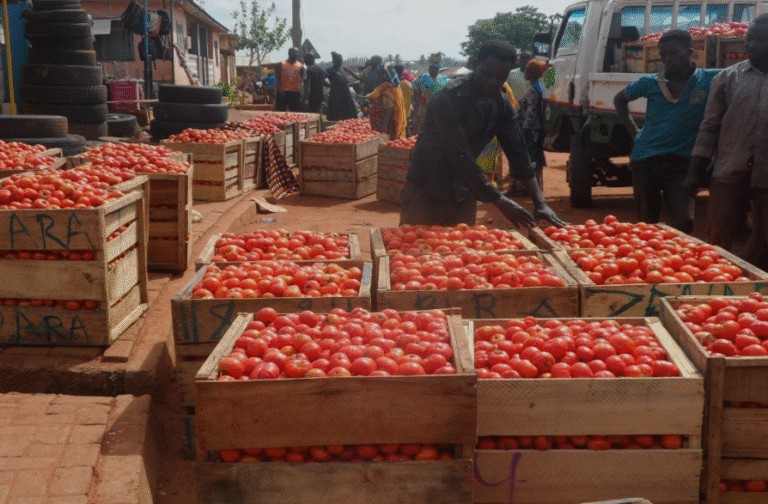Tomato farmers in the Anloga District of the Volta Region have expressed deep frustration over the lack of ready markets and storage facilities to support their produce, a situation they say is crippling income and threatening the future of farming in the area.
The farmers warned that the challenges, if left unresolved, could undermine the sustainability of tomato cultivation and weaken the foundation for other agricultural ventures.
Mr. Semabia Agbenyefia, a farmer at Anloga-Avume, told the Ghana News Agency (GNA) that heavy post-harvest losses remain their biggest challenge, with tomatoes rotting within days due to the absence of storage facilities and reliable buyers.
“Our other biggest issue here is that some buyers have drastically reduced the market price. A box of tomatoes, which is supposed to sell for GH₵1,050, now goes as low as GH₵80 or GH₵70, making profitability an uphill battle,” he lamented.
He called for the establishment of tomato processing factories in the district, stressing that such facilities could help preserve the produce, reduce losses, and create much-needed jobs for the youth.
Mr. Agbenyefia also pointed to the impact of climate change, citing extreme heat, drought, and unpredictable rainfall as factors worsening crop failure and financial losses.
“The absence of ready markets and proper storage facilities remains a critical pain point for us. It significantly contributes to post-harvest woes. We are being forced to sell our produce under unbearable conditions,” he said.
Another farmer, Ms. Cecilia Seshie, echoed these concerns, stressing that urgent interventions were required to save the sector. She feared that without robust support, tomato farming in Anloga could collapse, leading to hunger and unemployment.
She explained that many farmers invest between GH₵2,000 and GH₵5,000 per season with hopes of earning enough to pay school fees, rent, and other expenses. The current losses, she said, were pushing many into debt.
The farmers are appealing to the government, philanthropists, corporate organisations, stakeholders, and farmer associations to intervene and provide solutions to secure their livelihoods and improve productivity.
Source:Lovinghananews.com


